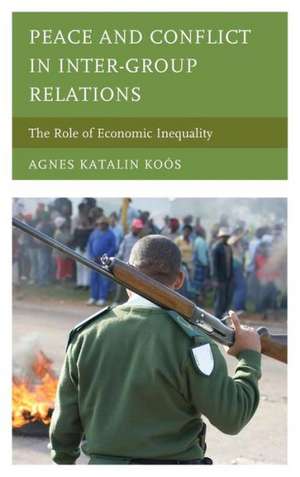Peace and Conflict in Inter-Group Relations
Autor Agnes Katalin Koosen Limba Engleză Hardback – 18 noi 2014
Preț: 831.63 lei
Preț vechi: 1139.22 lei
-27% Nou
Puncte Express: 1247
Preț estimativ în valută:
159.12€ • 167.03$ • 132.08£
159.12€ • 167.03$ • 132.08£
Carte tipărită la comandă
Livrare economică 10-24 aprilie
Preluare comenzi: 021 569.72.76
Specificații
ISBN-13: 9781498502887
ISBN-10: 1498502881
Pagini: 360
Ilustrații: 9 charts, 81 tables
Dimensiuni: 155 x 231 x 30 mm
Greutate: 0.64 kg
Editura: Rowman & Littlefield
ISBN-10: 1498502881
Pagini: 360
Ilustrații: 9 charts, 81 tables
Dimensiuni: 155 x 231 x 30 mm
Greutate: 0.64 kg
Editura: Rowman & Littlefield
Notă biografică
Descriere
The book explains inter-communal hostility and violence by analyzing extensive datasets that typify the condition of minorities worldwide. The analyses establish the deleterious causal impact of inter-group economic inequality on group relations against a background of institutional features that may promote or inhibit peaceful solutions.
